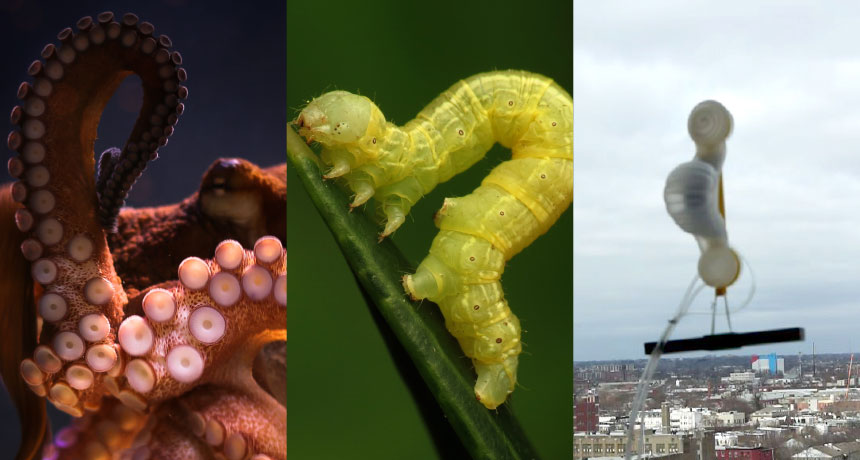A new soft bot mimics octopuses and inchworms to climb walls
This skill could come in handy for surveillance or building inspections

FREE CLIMBING A new soft robot (right) looks like an inchworm and is equipped with two octopus-like suckers to help it climb vertically.
From left: Joe Parks/Flickr (CC BY-NC 2.0); Katja Schulz/Flickr (CC BY 2.0); Yichao Tang and Jie Yin/Temple University